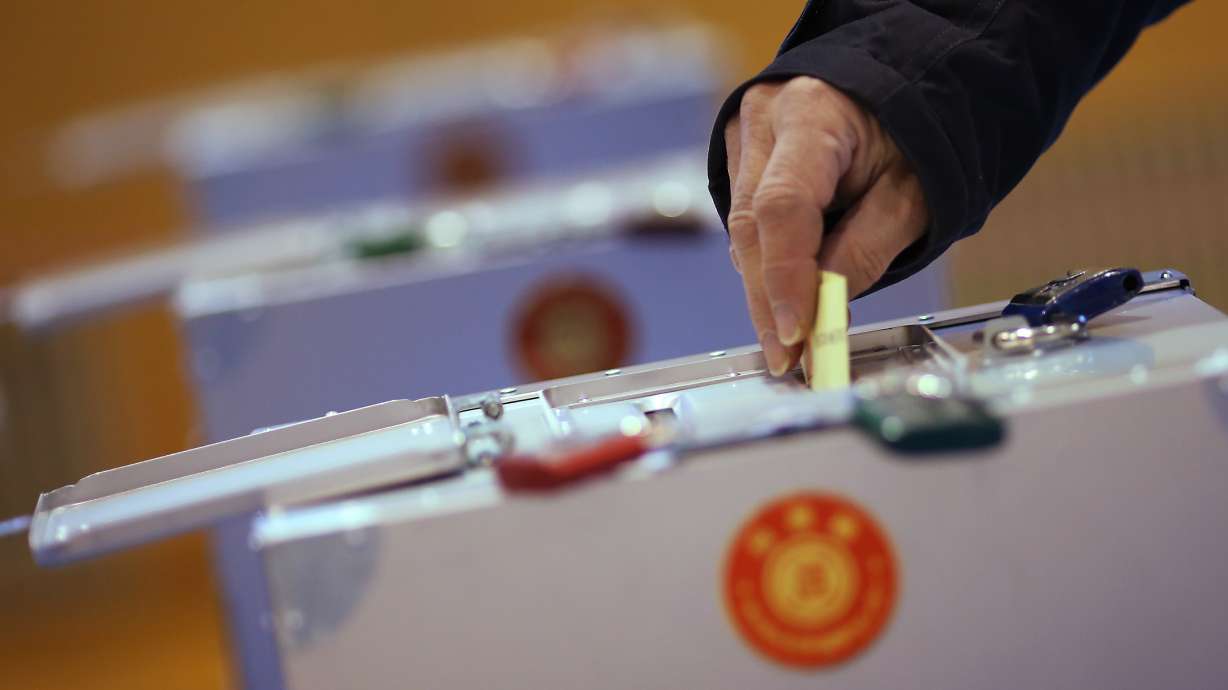Estimated read time: 2-3 minutes
This archived news story is available only for your personal, non-commercial use. Information in the story may be outdated or superseded by additional information. Reading or replaying the story in its archived form does not constitute a republication of the story.
TOKYO (AP) — Japan's ruling coalition won big in Sunday's lower house elections, returning the party of Prime Minister Shinzo Abe to power. At stake in the snap elections, called by Abe last month, was the 475-seat lower house, which is the more powerful of Japan's two houses and has the final say in picking a prime minister and approving most legislation. Here's a look at the key points in the elections.
___
WHAT HAPPENED
As pre-election polls suggested, Abe's Liberal Democratic Party retained power easily. It won a large majority on its own, and appeared to be headed for a two-thirds majority together with its coalition partner, the Buddhist-backed Komei Party.
___
WHAT IT MEANS
Winning a large majority of seats could help Abe push through politically difficult initiatives such as opening Japan's agricultural markets and expanding the role of the military. Economic reforms are vital to a sustained recovery from two decades of stagnation, but face stiff opposition from vested interests — so even a landslide won't guarantee change.
The big win could also help Abe fend off leadership challenges from within his party. If his popularity ratings remain relatively high, he could be prime minister for up to four more years, when he would be legally required to call another election.
___
WHAT ABE WANTS
Abe hopes to stem a slide in his support while his government remains relatively popular and the opposition is in disarray. Consolidating power now may aid in his longer-term goal of amending the constitution, as well as restarting nuclear power plants.
___
IMPLICATIONS OUTSIDE JAPAN
Japan's relations with its huge neighbor and trading partner China have soured since Abe took office in late 2012, with the countries sparring over conflicting claims to islands in the East China Sea that are controlled by Tokyo. Sunday's election could further roil ties with China if Abe interprets the Liberal Democrats' strong showing as a mandate for a tough stance toward Beijing.
Copyright © The Associated Press. All rights reserved. This material may not be published, broadcast, rewritten or redistributed.









